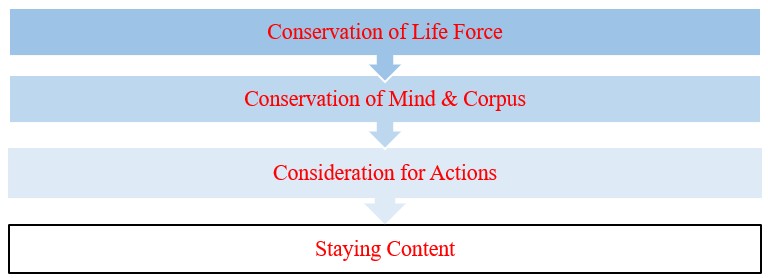INTRODUCTION
Most of us have heard a proverb in English. It says “as you sow, so you reap”. Almost all the languages in the world, have a proverb with similar meaning. The meaning of this proverb is that you get for, what you do. People for ages have been interpreting it, as if you do good to someone, you will get good results in return, and if you do bad things to someone, you will get bad results. This is treated as the basic rule of actions and consequences, simply called as Karma.
But in our lives, many a times, we fail to see the rule being applied this way. We see “bad people” getting all the money & fame. We see “good people” getting hurt with misery & loss. A significant part of the world is still suffering from hunger, famine & poverty. Kids & infants suffering from terminal diseases.
We see all the things happening against the morals & values we are taught and we begin to think, why is so? Why is the world so unfair? And the most common answer we get to all this happens to be “maybe the karma had it for them”.
And, then we question the Karma. We question who decides it. Because religion points it towards the Almighty, we question the Almighty. But you cannot know the future for sure, in advance. And the almighty is not going to talk to you directly.
Some of us outrightly deny the existence of karma, and some just blame it for their problems in life. We are not telling you that you can know about it beforehand. We are just telling you to how to synchronize your life with your actions, to solve your problems, to feel less pain and live with more enthusiasm & vigor.
THE CONCEPT OF KARMA
Karma, is a word in ancient Indian language, Sanskrit, which literally means “deeds” or “actions”. Western literatures identify karma as some sort of fate handing out justice. This is partially right. But still, there are apprehensions about karma. To understand it, we need to understand the nature surrounding us of which we are a part. Nature always enforces on us for our actions and enforcement could be good or bad, based on our perception. Karma includes everything from our jobs, relationships, travel, cooking and everything else you do.
We have to conceive is that karma is directly linked with our actions. The rules of karma, we call the karmic rules, apply to every being. This applies to all living beings, all animals, all humans and all organizations or collectives formed by humans or other animals. Just like we have our own personal karma, every organization has its own karma, every nation has its own karma & every society, even the humanity has its own karma.
KARMA OF THE COLLECTIVE
In fact, most of the times, when we blame our personal karma for something unfavorable, we forget to recognize that there was a collective action at play. Let’s see from an example. Suppose you made an investment in a business. You tried hard to run the business. But it still failed. You think it was just bad karma for you. You forget to acknowledge that when you started business, you might have borrowed money from some people, you found some suppliers, you hired some employees, you made some customers, you did many things with many people and thus they were all involved with your decision making.
As you were unaware of the efforts, the intentions & the fate of different stakeholders, your own efforts, may not be sufficient to counter all that and make your actions surpass them. Most of the times, when we perceive something as good or bad, success or failure, it’s the collective karma doing its work.
RULES OF THE KARMA
Rules of the karma are simple. Actions have outcomes & all of these are functions of time and efforts. Efforts could be physical or mental, or both. Still though, we say that karma works in mysterious ways. In real sense, its’ not the mystery of the karma that perplexes us. It’s the limited perception in our minds & the fear of the unfavorable outcomes that makes us perplexed.
We can accept the outcomes happily or with pain and regret, but one thing remains unchangeable. That, we will need to act again and keep doing things constantly, even if to reject or amend the outcomes handed to us by the karma. It could be instant or may take its own time.
KARMIC CYCLE
We must also know that Karma never stops, it runs in a pattern or cycle, called the karmic cycle. Karmic cycle is just a sequence of actions and its outcomes running in a loop. The outcomes and its perception by the person receiving it are just a function of the time & karmic rules. The same results at different times may have different meanings for the same person. For example, a kid getting a bike as a gift may be very happy today, but the same boy, when grows up and becomes an adult man, drives an expensive car, gets a bike as a gift, may not feel that joy, he felt as a kid.
Our actions are always imprinted upon the karmic cycle.
With each action, we make changes to our karmic cycle. Based on the intensity of the act, the change can be anything, from subtle to significant. And based on the role time plays, the outcome maybe significant or no to significant for us. Therefore, our personal karma is a derivative of our actions, thoughts, reasons, actions, morals & values. We can relate to our karma is through these functions. Rather than investing our lives in the mysteriousness of the karma, we can manage our thoughts & actions, we can evaluate thoughts & actions of others with better awareness. This is not difficult. trust me.
WHY IS IT IMPORTANT?
Unfortunately, todays’ world is running behind miracles. In todays’ slang they are known as “hacks”. Apparently, ‘hacks‘ are being applied to do things quickly. ‘Self-help-hacks’, being distributed by millions of guides and gurus across the world, not only conflict with each other, but also do not apply to everyone in general. Humans cannot force habits upon ourselves in a few hours or a few days. It may require years of practice or it may engrave on your mind in a few seconds, if your conscience accepts it.
There cannot exist any hack for Karma. Those who teach hacking it are just frauds.
Karma is not disconnected from people. It is the witness, jurist & judge of our actions. We can reform our actions, seek forgiveness or accept the prize or punishment. Ultimately, we all have to cope with it.
This website will be sharing more content for collective learning on life & karma. For details on this post, please read below. Till then, may the karma reward you, as you wish.
Your views & feedback on this content are welcome. You may also contact for discussing ideas, thoughts & problems. You may also contribute to our endeavors. For further details regarding discussion sessions, feedback or contribution, please reach us at our feedback page.











